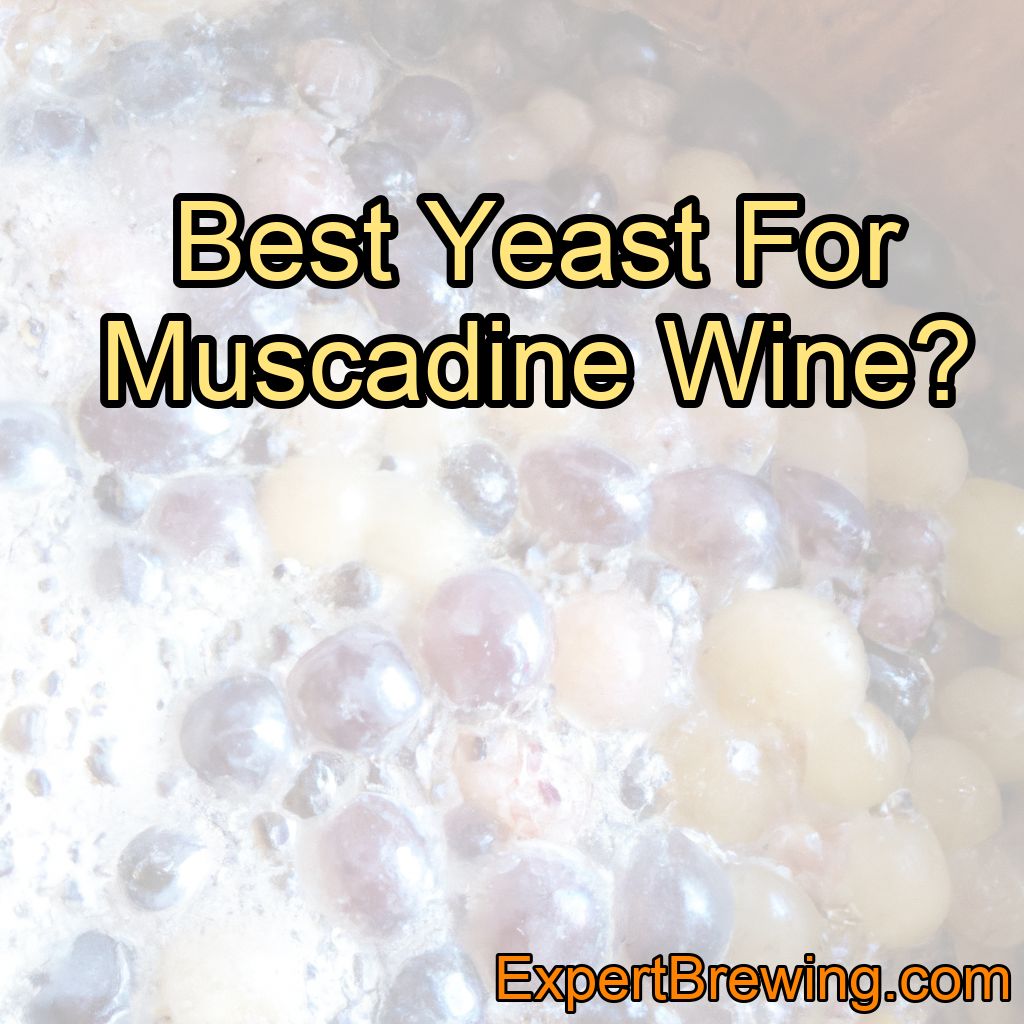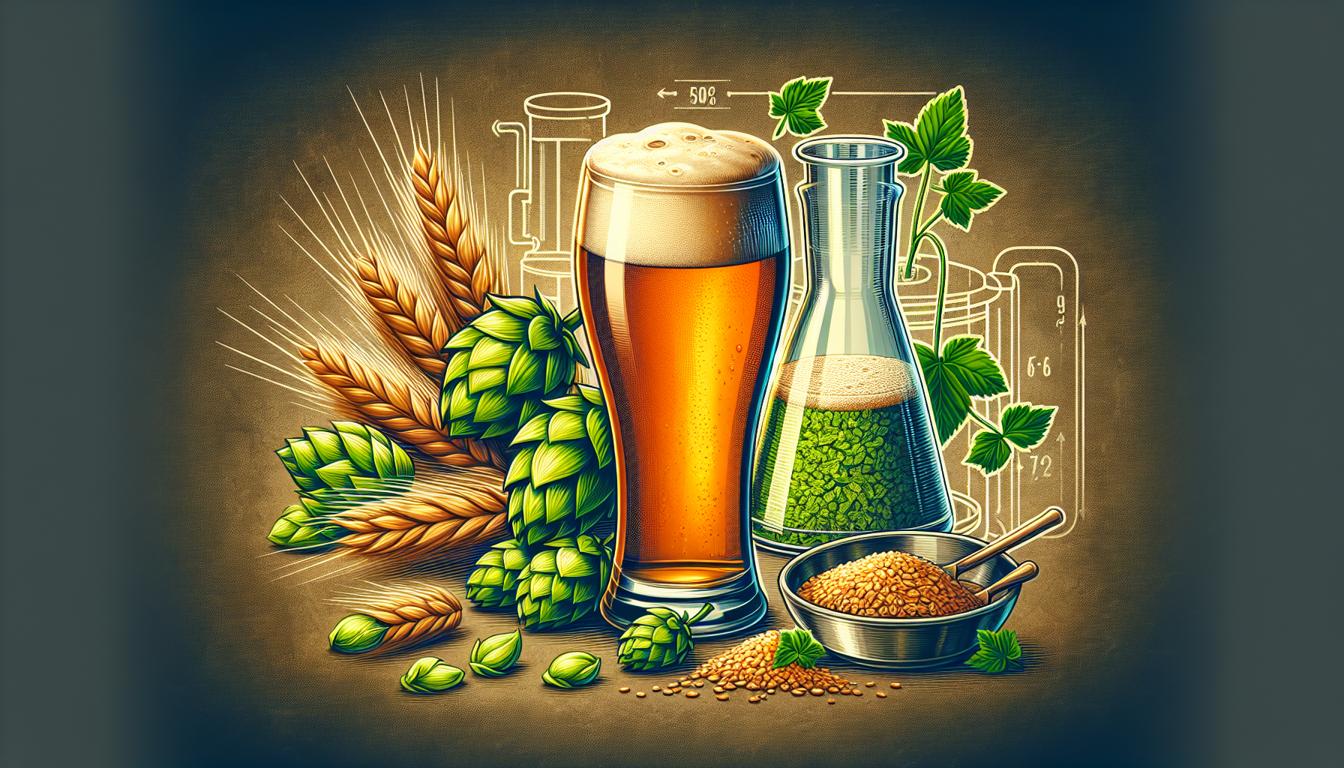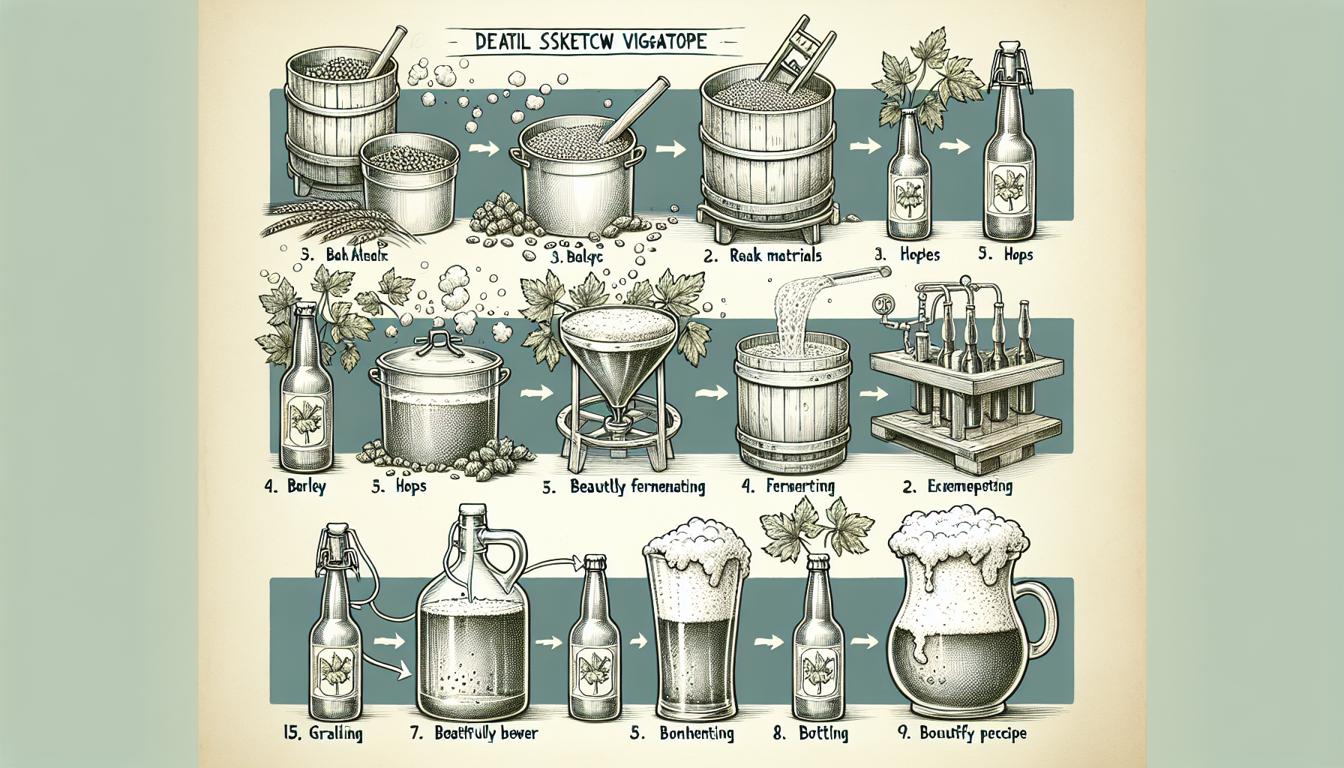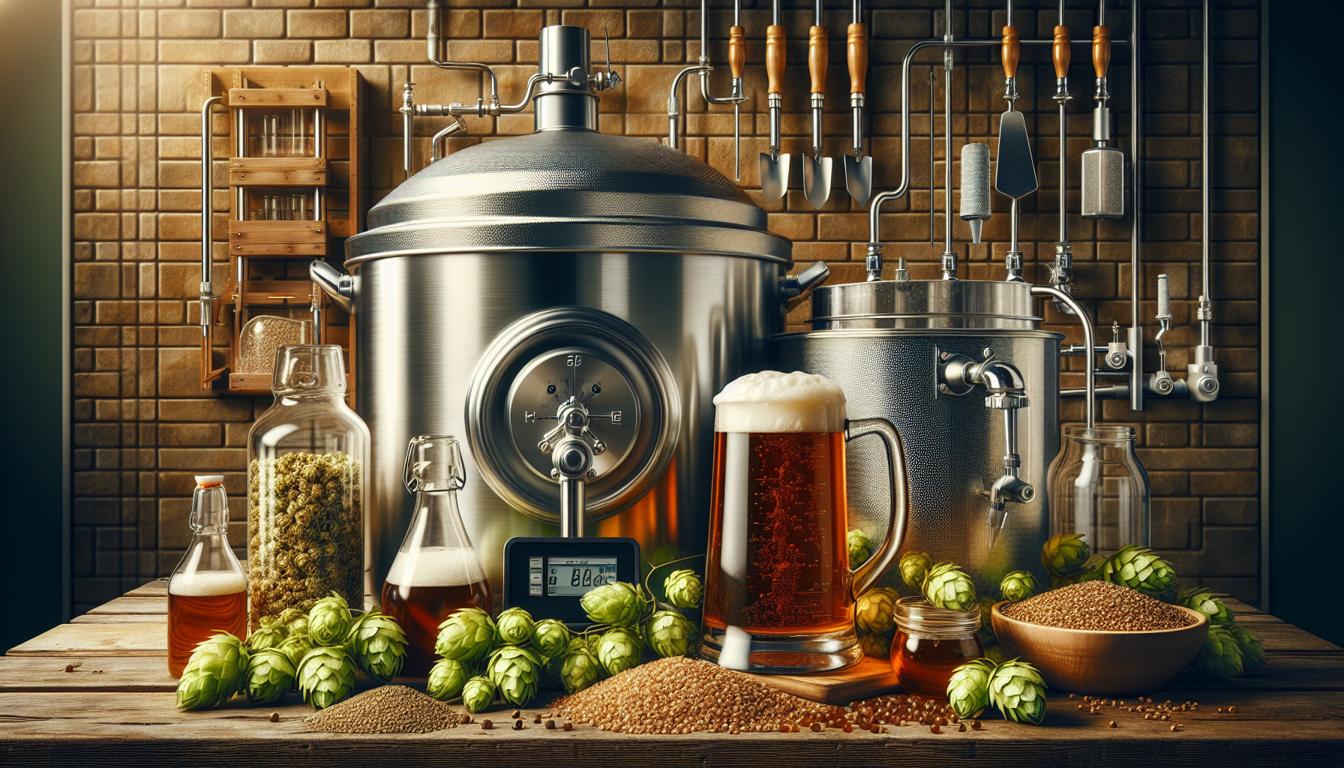Muscadine wine is a unique and tasty treat that has been enjoyed for centuries. This southern favorite is made from the muscadine grape, which is native to the southeastern United States.
These grapes have a distinctive flavor, making them perfect for creating a delicious wine. One of the most important factors in making a great muscadine wine is choosing the right yeast. In this blog post, we will explore the best yeast options for muscadine wine and the factors that go into making that decision.
In my opinion, the best yeast for muscadine wine is Lalvin EC-1118. This yeast is known for its ability to ferment a wide range of sugar levels, making it perfect for muscadine grapes.
The Importance of Yeast in Winemaking
Yeast is a crucial component in the winemaking process. It is responsible for converting the sugar in the grapes into alcohol, which in turn creates the wine.
The type of yeast used can have a significant impact on the flavor profile and overall quality of the finished product. Therefore, it is essential to choose the right yeast for the specific type of wine you are making.
As a seasoned brewer, I can attest to the fact that not all yeasts are created equal. Some yeasts are better suited for certain types of grapes and winemaking techniques than others.
In the case of muscadine wine, it’s important to select a yeast that can handle the high sugar levels and unique flavor profile of the muscadine grape.
Lalvin EC-1118: The Best Yeast for Muscadine Wine
Lalvin EC-1118 is the best yeast for muscadine wine for several reasons.First and foremost, this yeast is known for its ability to ferment a wide range of sugar levels.
This is particularly important for muscadine grapes, as they tend to have higher sugar content than other grape varieties.
Additionally, the neutral flavor profile of Lalvin EC-1118 allows the natural flavors of the muscadine grape to shine through, ensuring a true muscadine wine taste.
I have personally used Lalvin EC-1118 in my own muscadine wine recipes and have always been pleased with the results. The wine consistently ferments to dryness, leaving behind a clean, crisp flavor that showcases the unique taste of the muscadine grape.
Other Yeast Options for Muscadine Wine
While Lalvin EC-1118 is the top choice for muscadine wine, there are a few other yeast options that can also produce a delicious end product. These include:
1. Red Star Premier Blanc: This yeast is known for its ability to ferment at high temperatures, making it a good choice for those in warmer climates. Additionally, it has a neutral flavor profile, similar to Lalvin EC-1118, allowing the muscadine grape flavors to take center stage.
2. Lalvin 71B: This yeast is another good option for muscadine wine, as it is known for its ability to enhance fruit flavors. However, it may not ferment to dryness as consistently as Lalvin EC-1118, so keep this in mind when making your decision.
3. Red Star Côte des Blancs: This yeast is known for producing fruity, aromatic wines, making it a suitable choice for muscadine wine. However, it may struggle to ferment the high sugar levels found in muscadine grapes, so it may not be the best choice for those looking to produce a dry wine.
Factors to Consider When Choosing a Yeast
When selecting a yeast for your muscadine wine, there are several factors to consider. These include:
1. The sugar content of your grapes: Some yeasts are better equipped to handle high sugar levels than others. Make sure to choose a yeast that can ferment the sugar content of your muscadine grapes.
2. The desired flavor profile: Different yeasts can produce different flavor profiles in the finished wine. Choose a yeast that will enhance the natural flavors of the muscadine grape, rather than overpowering it.
3. Fermentation temperature: Some yeasts perform better at specific temperature ranges. Make sure to select a yeast that can ferment in your desired temperature range.
4. Fermentation speed: Certain yeasts ferment faster than others. If you need your wine to be ready quickly, you may want to choose a fast-fermenting yeast.
5. Alcohol tolerance: Some yeasts have a higher alcohol tolerance than others. Make sure to select a yeast that can tolerate the alcohol levels that you expect in your finished wine.
The Winemaking Process with Muscadine Grapes
Now that you have selected the best yeast for your muscadine wine, it’s time to begin the winemaking process. The steps involved in making muscadine wine include:
1. Harvesting and crushing the grapes: Choose ripe, healthy muscadine grapes and crush them to release the juice.
2. Adjusting sugar levels: Measure the sugar content of the grape juice and adjust as necessary to reach your desired starting sugar level.
3. Adding yeast: Add the selected yeast to the grape juice and mix well.
4. Fermentation: Allow the yeast to ferment the grape juice, typically for 7-14 days.
5. Pressing and racking: Separate the wine from the grape skins and sediment, and transfer the wine to a clean container for aging.
6. Aging: Age the wine in a cool, dark place for at least 6 months, or until it reaches your desired taste.
7. Bottling: Transfer the aged wine to bottles, cork, and store in a cool, dark place until ready to serve.
Enjoying Your Muscadine Wine
Once your muscadine wine has aged and is ready to serve, it’s time to enjoy the fruits of your labor! Muscadine wine pairs well with a variety of dishes, including southern favorites like fried chicken and barbecue. It also makes a delicious dessert wine, perfect for sipping after a meal.
Conclusion: The Best Yeast for Muscadine Wine
In conclusion, the best yeast for muscadine wine is Lalvin EC-1118. This yeast is well-suited to handle the high sugar levels and unique flavor profile of muscadine grapes, ensuring a delicious finished product. To wrap up, here are ten facts about muscadine wine and the winemaking process:
1. Muscadine grapes are native to the southeastern United States.
2. These grapes have a unique flavor profile, making them perfect for wine production.
3. The best yeast for muscadine wine is Lalvin EC-1118.
4. Yeast is responsible for converting sugar into alcohol, creating wine.
5. Lalvin EC-1118 is known for its ability to ferment a wide range of sugar levels.
6. Other suitable yeasts for muscadine wine include Red Star Premier Blanc, Lalvin 71B, and Red Star Côte des Blancs.
7. Factors to consider when choosing a yeast include sugar content, desired flavor profile, fermentation temperature, fermentation speed, and alcohol tolerance.
8. The winemaking process involves harvesting and crushing grapes, adjusting sugar levels, adding yeast, fermentation, pressing and racking, aging, and bottling.
9. Muscadine wine pairs well with southern favorites like fried chicken and barbecue, as well as serving as a dessert wine.
10. The unique flavor of muscadine wine is a testament to the importance of choosing the right yeast for the job.
FAQs
How much muscadine juice to make a gallon of wine?
Typically, you will need about 12-15 pounds of muscadine grapes to make a gallon of wine, depending on the specific recipe and desired sweetness.
How many pounds of muscadines does it take to make a gallon of wine?
It takes approximately 10-12 pounds of muscadines to make one gallon of wine.
How many muscadines does it take to make 5 gallons of wine?
It depends on the size and ripeness of the muscadines, as well as the desired sweetness and alcohol content of the wine. Generally, it takes around 80-100 pounds of muscadines to make 5 gallons of wine.
How many pounds of muscadines does it take to make 5 gallons of wine?
It typically takes around 20-25 pounds of muscadines to make 5 gallons of wine.
What yeast is best for muscadine wine?
The best yeast for muscadine wine is a strain of Saccharomyces cerevisiae that is specifically designed for use in winemaking, such as Lalvin EC-1118 or Red Star Premier Blanc.
How much muscadine juice do you need to make 5 gallons of wine?
You will need approximately 100-120 pounds of muscadine grapes to make 5 gallons of wine.





